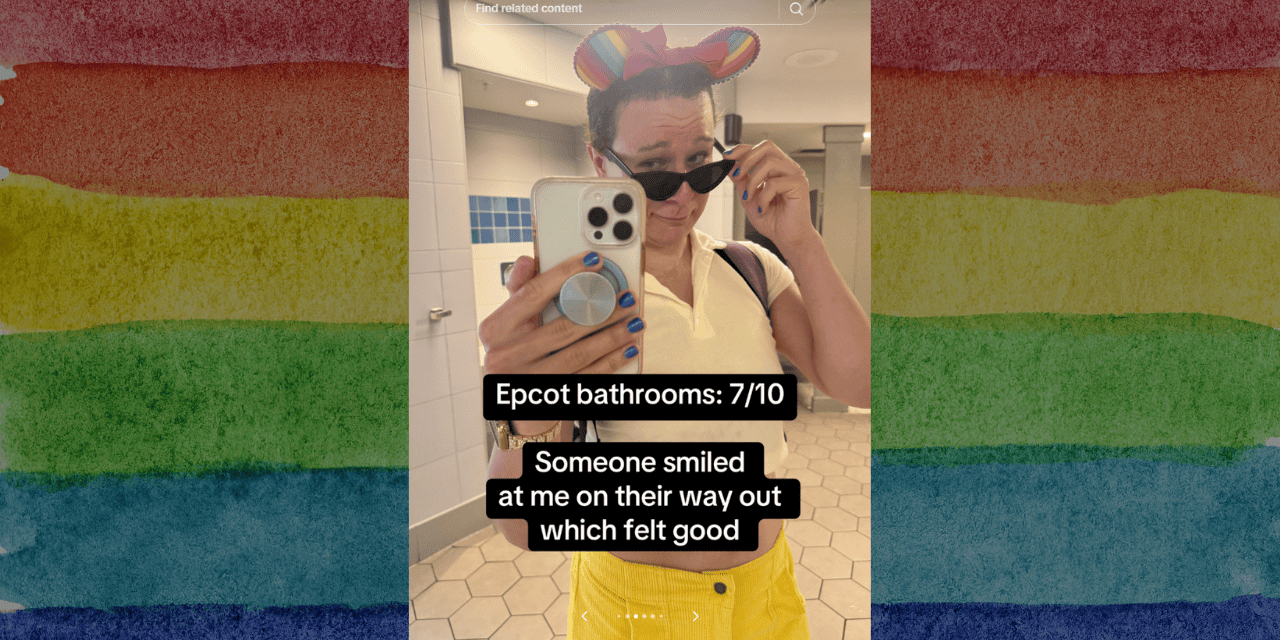Villanova University Releases Guidelines Pushing Students and Staff to Use ‘Preferred Pronouns’

Villanova University, a private Roman Catholic research university, has issued new guidelines to students and staff informing them how to use “best practices” to be “gender inclusive.”
The new Gender Inclusive Practices Guide states that Villanova has already made it possible for students to “enter chosen first name and personal pronouns into Banner,” one of the university’s website applications.
“Chosen first name and personal pronoun will now appear on class lists and other university communications,” the guide states.
“This guide introduces Villanova faculty and staff to best practices for being gender inclusive in our work spaces, laboratories, and classrooms – especially for those who identify within transgender, nonbinary, gender nonconforming, and/or gender questioning communities,” the document states.
The guideline then suggests students and staff do the following:
- Remind yourself and others that gender inclusivity is fundamental to Villanova’s mission.
- Normalize an inclusive approach to gender by modeling one yourself.
- Add a Gender Inclusion statement to your syllabus or new employee orientation materials.
- Incorporate discussions of gender into work or classroom culture.
- Carefully review your course rosters and employee records for name and pronoun designations.
- Practice pronoun usage.
- Address misgendering.
The guidelines were published in August 2022 by Villanova’s Office of Diversity, Equity and Inclusion, Gender & Women’s Studies and other programs.
The Daily Citizen reached out to Villanova asking them how, as a Catholic university, they reconcile the new guidelines with Genesis 1 which states that God created man “male and female,” and with the Catechism of the Catholic Church which states, “Everyone, man and woman, should acknowledge and accept his sexual identity” (CCC 2333).
In a statement to the Daily Citizen, Villanova spokesman Jonathan Gust said, “Villanova upholds and maintains the Catholic Church’s teaching that all people are accepted with respect, compassion and sensitivity.”
“As part of our Augustinian values of Veritas, Unitas, Caritas—Truth, Unity and Love—Villanova seeks to be a welcoming and inclusive community that respects members of all backgrounds and faiths. Calling someone by their name and pronouns is a show of respect for them as a person and fellow Villanovan,” he added.
That statement uses all the ideological buzzwords frequently employed by pro-trans activists, words like, “acceptance,” “welcoming” and “inclusivity.”
Is it good to show respect to others? Certainly. Is it important to treat others with the respect that they deserve as human beings with infinite worth, made in the image of God? Absolutely.
But is it necessary to use someone’s “preferred,” or as Villanova puts it, “personal pronouns,” to do so?
Hardly.
It is not disrespectful to recognize a person’s biological sex, and to treat and refer to them accordingly. In fact, using someone’s true pronouns respects their reality as an individual made in the image of God far more than using their “preferred” pronouns does.
Using someone’s “preferred” pronouns, rather than their biological ones, is a form of lying. And someone shouldn’t lie to a person they respect.
By encouraging students and staff to refer to others according to their “personal” pronouns, Villanova is rejecting the very reality of “male” and “female,” and thereby rejecting the goodness of God’s creation of humankind as two distinct yet complementary sexes.
This denial subjugates objective truth to an individual’s personal and subjective misbeliefs.
And what exactly is a “personal” pronoun? If our society has collectively decided we can all choose our “personal” pronouns, can we all have “personal” nouns, adverbs, adjectives, and prepositions?
Additionally, it seems more than a little ironic that while Villanova claims it is a university of “welcome” and “acceptance,” the guidelines make clear that those who believe in the biological reality of male and female aren’t welcome at Villanova.
Under the guideline’s “address misgendering” bulletpoint, Villanova encourages its students and staff to do the following:
“Politely intervene when misgendering occurs, whether that person is present or not. (‘That’s a great point. X-person actually uses they/them pronouns…’) A quick and simple intervention will almost always suffice.”
So called “misgendering” is a mistaken term that gender activists use to refer to the action of referring to an individual according to their biological sex, rather than according to their so-called “gender identity.”
Apparently, according to Villanova, those who acknowledge biological reality need an “intervention.”
That doesn’t sound respectful or welcoming at all.
Photo from Shutterstock.
ABOUT THE AUTHOR
Zachary Mettler is a writer/analyst for the Daily Citizen at Focus on the Family. In his role, he writes about current political issues, U.S. history, political philosophy, and culture. Mettler earned his Bachelor’s degree from William Jessup University and is an alumnus of the Young Leaders Program at The Heritage Foundation. In addition to the Daily Citizen, his written pieces have appeared in the Daily Wire, the Washington Times, the Washington Examiner, Newsweek, Townhall, the Daily Signal, the Christian Post, Charisma News and other outlets.




